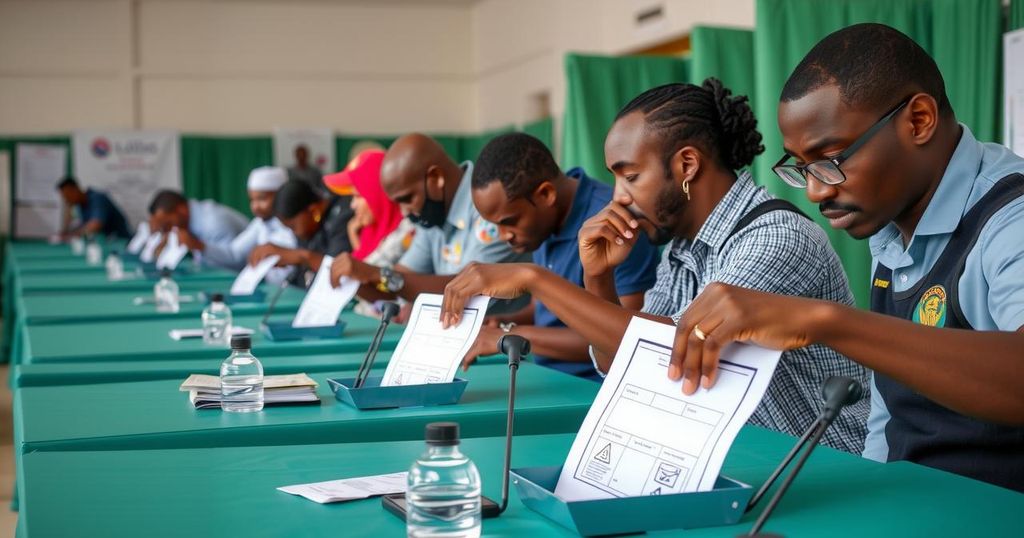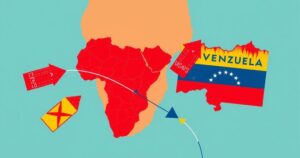Comoros Votes to Elect New Parliament Amid Political Tensions and Controversies

Voters in the Comoros are casting ballots for a new parliament amidst allegations of electoral misconduct from the previous year. President Azali Assoumani, facing accusations of authoritarianism, has granted new powers to his son. Some opposition groups are calling for a boycott, while others advocate for participation to expose the ruling party’s flaws. The election results are set to be released by Friday.
Voters in the Comoros archipelago are currently participating in elections for the 33-seat parliament, marking a significant political moment a year following the disputed re-election of President Azali Assoumani. The ruling party has dismissed allegations of irregularities, whereas the opposition claims such issues marred the previous election. On this electoral day, approximately 338,000 citizens are eligible to cast their votes, with polling stations having opened early on a Sunday morning.
The parliamentary elections are a continuation of the democratic process, last held in January 2020 when Assoumani’s administration faced scrutiny for its governance. Nearly 100 candidates have been approved to compete, although several opposition factions, including Juwa led by the imprisoned former President Ahmed Abdallah Sambi, have urged a boycott. In contrast, other opposition leaders believe participating in the elections will shine a light on the government’s failures, ultimately hastening its decline.
President Assoumani, in power since 1999 after a coup, has been accused of authoritarian practices, including the recent allocation of extensive powers to his eldest son, Nour El-Fath, who has been given significant governmental responsibilities. The political landscape is tense, with varied strategies among opposition parties as they navigate this electoral challenge. The results of today’s voting are anticipated to be announced by Friday.
The Comoros archipelago, located in the Indian Ocean, is currently facing a crucial period in its political landscape, as the nation prepares for the elections of its parliamentary representatives. These elections come on the heels of President Azali Assoumani’s re-election, which has been met with skepticism and allegations of widespread electoral irregularities by the opposition. Assoumani’s tenure has been marred by accusations of authoritarian rule, further complicating the nation’s democracy and governance. The elections involve a significant number of candidates striving for a parliamentary seat, with various factions within the opposition voicing contrasting strategies regarding their participation.
In conclusion, the elections for Comoros’ parliament represent a critical juncture for the nation, highlighting the ongoing tensions between the ruling party and various opposition groups. As voters flock to polling stations, the outcomes will likely influence the future stability and governance of the Comoros. The dynamics of participation, particularly among opposition parties, could prove instrumental in shaping Comoros’ democratic landscape moving forward. The results, expected by the end of the week, hold significant implications for the political future of the archipelago.
Original Source: www.begadistrictnews.com.au






